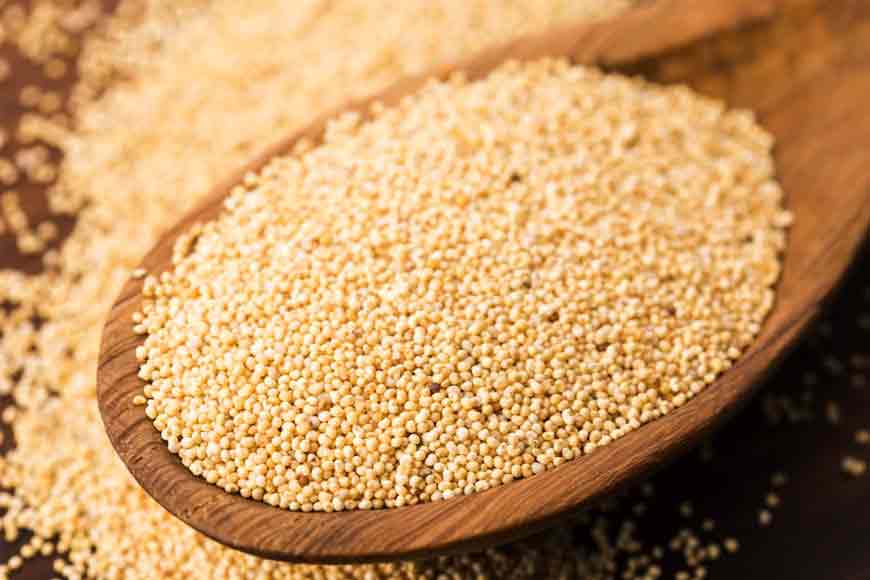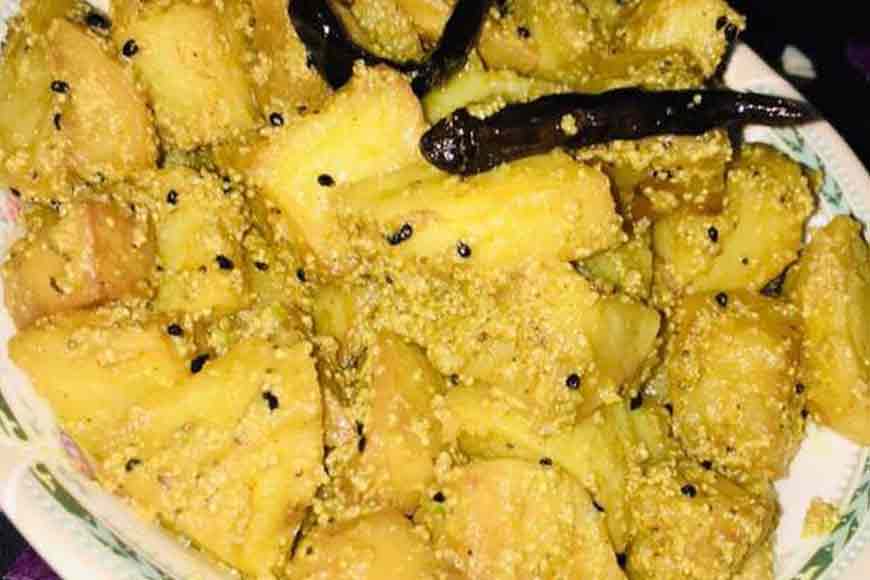Posto’s journey from Chinese opium farms to Bengal’s kitchens

If you are lapping up that favourite aloo posto or jhinge posto on a rainy noon with the piping hot bowl of rice, then think about British India and how China tried to stop our favourite poppy entering Bengal’s kitchens. Well, China has turned into a household name today maybe because of the Wuhan virus theory. But in British India, China was dreaded for the illegal opium trade which was later on taken over by the British.
After the Battle of Plassey in 1757, the British first set their base in Bengal and stumbled upon China’s massive illegal opium market. The British realized opium makes lot of money and hence the East India Company, tried to establish a monopoly on opium cultivation. And where would they get the fertile fields to do so? Well, Bengal. Thus Bengal turned into their hotbed of opium cultivation, and they started growing it at a cheap price. Overnight huge tracts of agricultural land in the Bengal Presidency were transformed into rolling poppy fields.
Rolf Bauer, Professor of Economic and Social History at University of Vienna, wrote an exhaustive history of the opium trade in India and how the colonial government regulated its production and consumption. “Farmers were forced to submit part of their land and labour to the colonial government's export strategy. It was a highly coercive system,” Dr Bauer says. He summarizes, “the opium business was hugely exploitative and ended up impoverishing Indian peasants. Poppy was cultivated against a substantial loss. These peasants would have been much better without it.”
 Aloo Posto
Aloo Posto
Poppy seeds or posto as Bengalis call it, is one of the most delectable traditional Bengali food recipes. Posto is most definitely the queen of Bengali kitchens and Bengalis find their comfort food in alu posto (potato curry in poppy based gravy), posto bata (raw paste of poppy seeds) and a host of other cuisines cooked with posto. But how did this residual by-product of the opium plant sneaked its way in Bengali kitchens? If we take a peek at history, we will discover how poppy seeds are fundamentally linked with illicit drug trade, exploitation and the Opium Wars.
Poppy and its medicinal properties were not new to India or Bengal. In Ayurveda it is used as a medicinal herb and is mentioned in the ‘Dhanwantari Nighantu’, one of the oldest Indian texts dealing with the properties of drugs. It was prescribed as a pain reliever since the seeds contain small quantities of both morphine and codeine. By mid-16th century, our favourite posto gave way to opium or apheem, and quickly became a popular recreational drug among Bengal’s babus.
Even it finds mention in ‘Abu'l Fazl’s Ain-e-Akbari as exquisitely beautiful blood red flowers that inspired durbar miniature artists of the time and artisans used them as motif in textiles. The gum that produced the drug was extracted from the poppy pods and the tiny, white, and kidney-shaped seeds were thrown away as waste product. Expert Mughal Shahi khansamas (desi royal chefs) working in the Emperor’s kitchens and discovered the nutty taste of the seed when made into a paste and they used it for thickening kurmas and gravy. The thick paste began to be used to enhance the taste of other exotic curries as well.
The native farmers' family in their destitution had to depend on meagre supplies of food to fend for themselves. The farmer's wife was forced to rummage through the waste residue of the poppy seeds. After drying out the seeds whatever was left found way into the Bengali kitchen and thus came into being “posto”. It was grounded into paste and used as the chief ingredient along with potatoes and mustard oil. The posto paste added a nice nutty flavour to the potatoes. Bengali women soon found myriad ways to cook with posto and now it is cooked not only with potatoes but also with yams, brinjal, ridge gourd, pointed gourd, colocassia, and with fish, egg and mutton/chicken as well. Posto is mingled with tamarind to make ombol, and is an essential part of making Goyna bori (dried lentil dumplings in the form of ornaments). Well-known author Chitrita Banerji writes on a lighter note, “An added bonus is its (poppy seeds) slightly soporific effect, which deepens the post lunch siesta for an ease loving Bengali”.
China however, tried blocking this monopoly of the British in the posto trade of Bengal. After all they were earning huge by cultivating opium illegally and selling it to the Europeans. Thus the humble and ever loved posto of Bengal gave rise to opium wars fought between the British and the Chinese. Such was the importance of the posto that probably you are having today, for a monsoon lunch.











